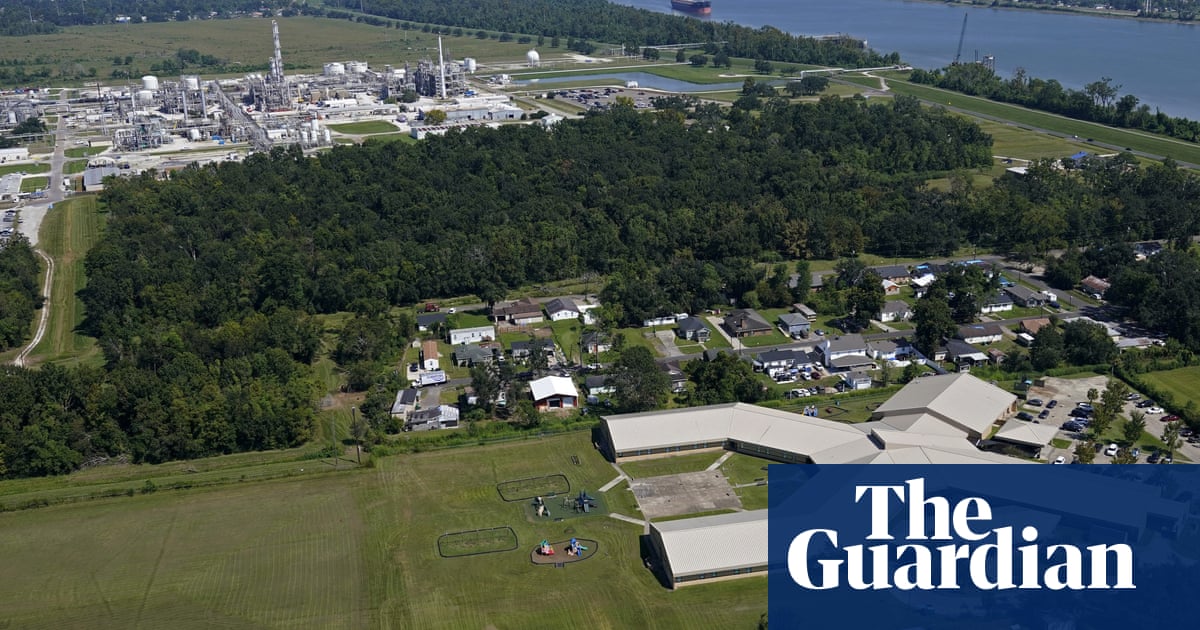A controversial chemical plant in the centre of Louisiana’s “Cancer Alley” region has indefinitely suspended all production following dire financial results, the facility’s operatorsannouncedon Tuesday.
The Denka Performance Elastomer plant in St John Parish haslong been associatedwith chronic air pollution issues andwas the subject of a years-long Guardian reporting seriesexamining the disproportionate cancer risk rates experienced by the majority-Black fence-line communities that surround the facility.
Denka, a Japanese chemicals firm, cited growing regulation during the Biden presidency and a “sustained slowdown in the global market demand” for its product, a synthetic rubber called neoprene, which is manufactured at the site. The company had not decided on permanent closure, a statement said, adding the chemicals giant was “exploring all available options for the future of the site, including sale of the facility”.
The fence-line community’s fight for clean air has become a national and international environmental justice clarion call, prompting a number of interventions from the Biden administration. These included the introduction of anew rulegoverning emissions on the plant’s primary pollutant, a likely human carcinogen namedchloroprene, and aUS justice department lawsuit seekingto compel Denka to lower its pollution.
The Trump administration sought to undo many of these initiatives. Trump’s justice departmentdropped the litigationin March citing “ideological overreach” and a new executive order targeting so-called “DEI programs”.
Denka said the administration had also “committed to rewrite” the Biden-era chloroprene rule.
Still, the company said in a statement that it had endured “extraordinary loss in its financial results” for the last year amounting to a 16.1 billion yen (roughly $109m) in losses. Although citing a decline in global demand, the company also blamed the uncertainty caused by increased regulation under Joe Biden for its facility’s financial collapse in America.
The Guardianhas revealedhow the plant’s former owners, US chemicals giant DuPont, sought to sell the facility in 2015 in a secretive deal after citing concerns about potential environmental regulation and its impact on profit margins. DuPont allegedly withheld information about these concerns before selling to Denka.
DuPont did not immediately respond to a request for comment on Tuesday.
Denka made reference to the 2015 sale again on Tuesday, suggesting it had “not anticipated” the need to install pollution control technology and equipment at the point of purchase. Since purchasing the facility, the Japanese firm has invested over $35m in emissions offset technology and has claimed to have reduced chloroprene emissions by more than 80%.
Notably,chloroprene readings recorded by the EPAhave continued to show measurements well in excess of the federal government’s lifetime exposure guidance.
Residents who have fought for years against the plant’s pollution expressed some cautious optimism on Tuesday.
“It [the suspension of production] is not about us, the community. They don’t care about us,” said Mary Hampton of Boundless Community Action. “What I see now is that they never intended to get emissions down. But now they’ve been hit internationally they don’t have a choice.”
Hampton, who has lived in the fence-line community of Reserve for her entire life and lost a number of family members to cancer, added that the community remained concerned about a potential sale to another manufacturer.
“I worry it’s just a temporary thing,” Hampton said. “I worry they’re going to sell to somebody else, who will come in with the same regulations and keep doing exactly what they want.”
